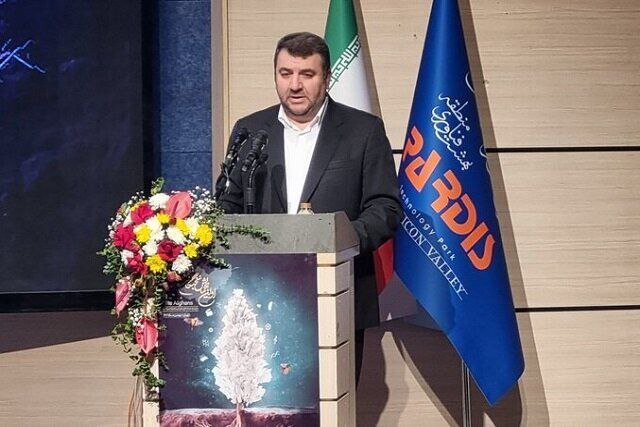Afghan knowledge-based companies allowed to be registered in Iran

TEHRAN – Afghan knowledge-based firms are allowed to be registered in Iran under the same conditions as Iranian companies, the head of the Organization for the Development of International Cooperation in Science and Technology has said.
Certain criteria and standards are required. They must acquire scientific grades, as well, ISNA quoted Hossein Roozbeh as saying.
The official made the remarks while addressing the first conference of Afghan elites on Saturday.
The country supports non-Iranian elites including Afghans since immigrants and Afghan students are talented and their research and scientific potentials are considerable.
“The Organization for the Development of International Cooperation in Science and Technology aims to benefit from these capacities and export Iran’s ecosystem of innovation and technology. So, we welcome cooperation with non-Iranian elites,” Roozbeh said.
Notable growth in knowledge-based companies
The significant and fast-paced growth in the number of knowledge-based companies with over 200 percent increase in their number just over the past year (March 2023 – March 2024), shows the solid foundation, dynamism, and growth of the country in innovation and technology and the productive atmosphere which have been made available in line with the goal of boosting domestic production with public participation.
The current administration underscores the quantitative and qualitative development of knowledge-based companies. The number of companies, which was around 5,000 before the current administration took office in August 2021, has now reached 10,000 with a total value of two billion dollars.
Science diplomacy
In July 2022, Deputy Science Minister Peyman Salehi said despite U.S. sanctions, the international activities of Iranian scientists have increased year by year so that more than 35 percent of Iranian articles in Scopus have been multi-national projects.
Science diplomacy is the use of scientific collaborations among nations to address common problems and build constructive international partnerships.
It is a form of new diplomacy and has become an umbrella term to describe a number of formal or informal technical, research-based, academic, or engineering exchanges, within the general field of international relations.
The national budget bill for the previous Iranian calendar year 1402 (March 2023-March 2024), earmarked about 37 trillion rials ($60 million) for science and technology.
The bill increased the budget by 35 percent year on year, ISNA reported.
The Vice Presidency for Science and Technology was formed in 2006 with the aim of creating an environment for supporting knowledge-based companies and providing the ground for the development of technological industries.
More than 8,000 knowledge-based companies have so far been established across the country.
Over the past couple of years, the concept of a ‘knowledge-based company’ has changed to a ‘knowledge-based society’, meaning that supporting knowledge-based companies will lead to many social and economic advantages for the public.
Leader of the Islamic Revolution Ayatollah Khamenei has emphasized the importance of boosting domestic production, saying the reason is “because it boosts economic growth, it creates employment, it reduces inflation, it increases per capita income and it improves public welfare.”
To this end, the Vice Presidency for Science and Technology has executed and supported several projects toward the goal of boosting knowledge-based production.
MT/MG
